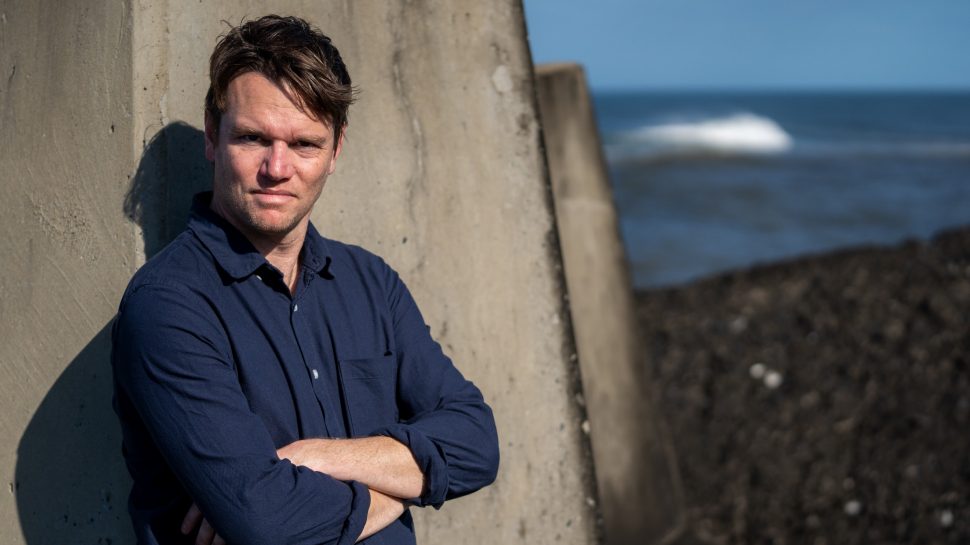5 ways to help kids cope with disaster
There is growing awareness of the long-lasting impacts disasters can have on kids. Helping kids cope is important. Here are five ways to support the little ones in your life after a disaster.

With Australian Red Cross, we’re delivering Pillowcase Workshops to more than 6,000 children a year to help prepare them for emergencies.
Recovering after a disaster takes a long time, and even once the clean-up is complete, and rebuilding underway, the emotional and social impacts of the events may remain.
While adults grapple with their own feelings, they also must assist little ones to do the same. Like many adults, children may need ongoing support in the months and even years after experiencing a disaster or crises.
According to Australian Red Cross, people of all ages and demographics may be at risk of developing anxiety or depression, particularly after experiencing a traumatic event or a disaster like a bushfire, flood, cyclone or earthquake – and many people continue to experience impacts to their mental health for years after the event.
Some common reactions following a disaster may include feeling overwhelmed, having intrusive memories or having trouble focusing or sleeping. It’s important to keep an eye on these reactions and if they inhibit a child from living their day-to-day life, discuss it with a GP or mental health professional.
We’re committed to supporting Australian communities in times of disaster, and in partnership with Australian Red Cross we’re helping communities prepare for, respond to and recover from natural disasters. Together, we’re delivering Pillowcase Workshops to more than 6,000 children a year who live in high hazard risk areas, teaching kids practical skills like what to bring in an emergency and how to prepare their minds for the thoughts and feelings that may arise before, during and after an emergency.
Whether it's floods, bushfires or another disaster life throws at you, here are some ways to support the kids in your life through these difficult times.
1. Listen and validate
Conversations can be one of the most important ways to assist a child in coping after a disaster. Encourage your child to tell you how they’re feeling and normalise their reaction. Some children may see the adults in their life struggling and try to mask their own feelings. Because of this, it's important to continually create opportunities and safe environments for them to talk. If they don't feel up to talking to you, encourage them to speak to another adult in their life like a grandparent or teacher.
2. Reassure them they're safe
After experiencing a disaster, children may need extra reassurance that they are safe and supported. Take the time to explain that the adults in their life are responsible for keeping them safe and use simple and proactive language to help them understand. Encourage them to voice their fears so you can reassure them with practical solutions.
3. Stop the doom scrolling
With so many of our children having access to the internet and social media, it’s important to monitor the content they consume. When disasters are front and centre in the media, reduce the time your children spend on their devices. If they already feel anxious about the event they’ve experienced, seeing disasters on the internet may increase their anxiety.
4. Keep up a regular routine
Disasters can cause children to feel like everything is out of control. During these times it can be helpful to find regular routines that will bring some normality back to your life. Whether it's consistent bedtime or meal routines, sports practice or regular family visits, routine can make children feel like they have some control during a time that can feel scary and out of control.
5. Make new happy memories
Sometimes the best thing you can do to help your child cope with the impacts of a disaster is offer a distraction. To them, everything might feel very doom and gloom so it's important to bring some sunshine back to your lives. Whether it's taking your kids to the park, getting away for a long weekend, or staying up past bedtime for a movie night, look for ways to focus on new, positive memories.
Remember, if you need support for yourself, a child or another person in your life, there are lots of resources available. Visit Beyond Blue for immediate support, online forums and more information about mental health and wellbeing.
Originally published on 29 August 2022
Australia Post proudly partners with Australian Red Cross
Australia Post proudly partners with Australian Red Cross
Whenever disaster strikes, Australia Post and Red Cross are there to support and help communities get back on their feet.



